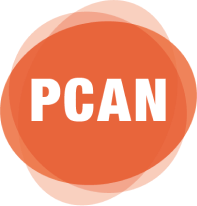Climate resilience database is just the start: now we need an app!
4th March, 2018 - 23:42
Lauren Fraser, an undergraduate at the University of Leeds, has compiled a database of resources on local and national climate resilience and adaptation to climate change for Leeds Climate Commission. Her work is finished, but there's potential for someone else to take up the reins, she writes in this blog.
Climate Resilience can be defined as the capacity for a socio-ecological system to absorb stresses and maintain function in the face of external stresses imposed upon it by climate change.
It also encompasses the ability to adapt, reorganise and evolve into more desirable configurations that improve the sustainability of the system as a whole, leaving it better prepared for future climate change impacts.
Although it’s somewhat depressing to feel that we are no longer able to ‘prevent’ climate change, realistically it is too late to reverse the impacts we have already had on the planet. Therefore, it is even more crucial that we have the policies and projects in place which will enable us to adapt to the changing environment and reduce potential impacts.
Throughout October, November and December of 2017 I compiled a climate resilience database for Leeds Climate Commission. This dataset, presented in an excel spreadsheet, includes a sample of the policies, strategies and documents relevant to climate resilience on a wide range of geographic scales. The project was undertaken with the guidance of Leeds City Council and Leeds Climate Commission and contains a large amount of Leeds specific policies and data as well as national strategies and reports.
The database is accessible to all through Datamill North. The aim, ultimately, is for it to consistently updated. In the longer term, I hope this data will be used to produce an interactive map showing ‘hotspots’ of climate resilience projects or areas where a specific policy was being enforced. These areas would be colour coded and when clicked would pop up with relevant information, such as a summary, the document link and the date the project was set up.
An advancement on this would be to turn the interactive map into an App through which people could find out about policies and strategies within their local area. The App could detail ways in which local people could help and get involved as well as promoting environmentally tips such as turning the tap off when you’re brushing your teeth or getting the bus to work instead of driving.
The creation of the map has taken longer than expected and still has a long way to go. However, having done the research and pulled together the main spreadsheet, the hard bit is essentially done. In the future I aspire to revisit the work I’ve done on this project and follow through with the map/App so people can become more engaged in what Leeds is doing to combat the effects of climate change. This is an area I am very passionate about and feel has the potential to have a great affect on the general population.
I would like to thank all those who helped me with this project, especially Tom Knowland, Robert Curtis and Jonathan Moxon of Leeds City Council. In my opinion this is an important piece of work that has great potential and could really make a difference. Hopefully someone else with passion and drive can pick it up now and run with it, as more data that presents itself builds innovation and opportunities for others!
Lauren Fraser, University of Leeds


